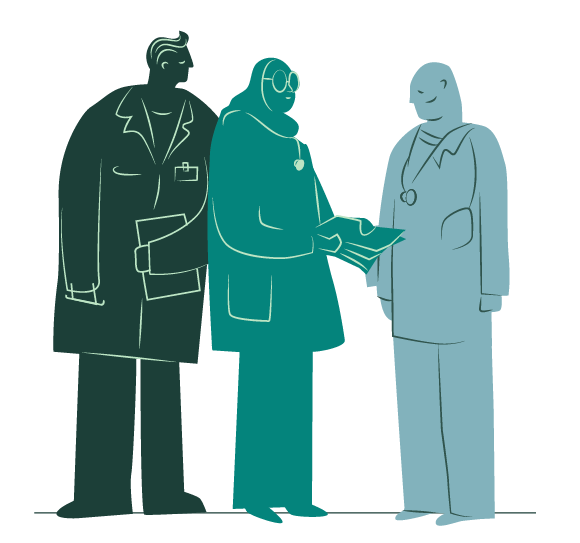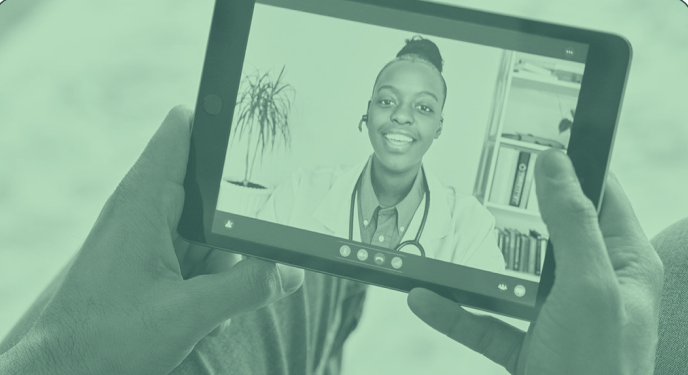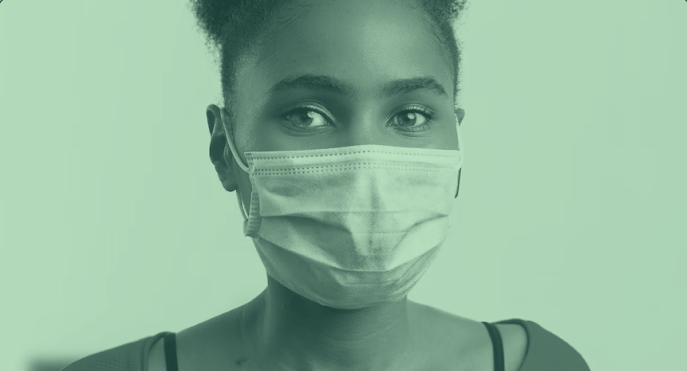TikTok's health revolution: how the platform is shaping the future of health information
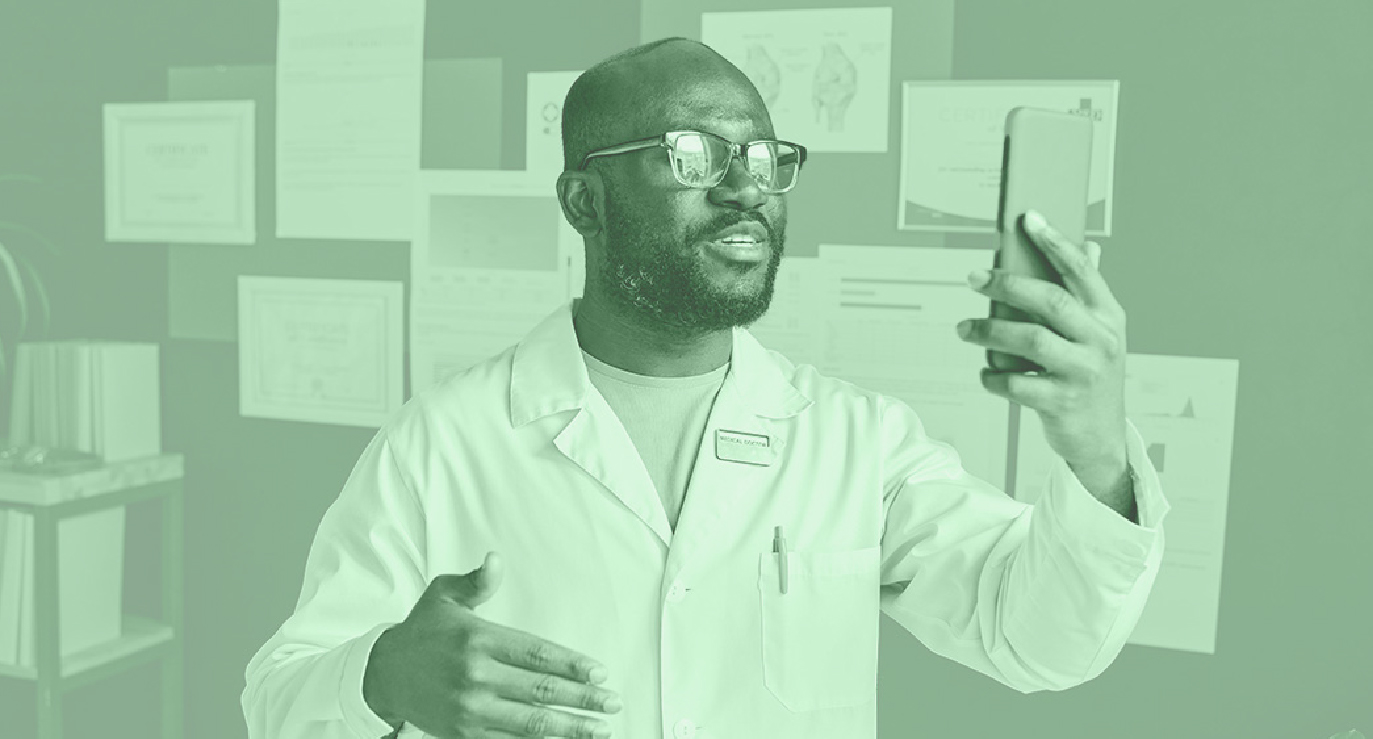
Once a platform primarily used for entertainment, TikTok has become something much more: nearly half of Americans now use TikTok as a search engine 1.
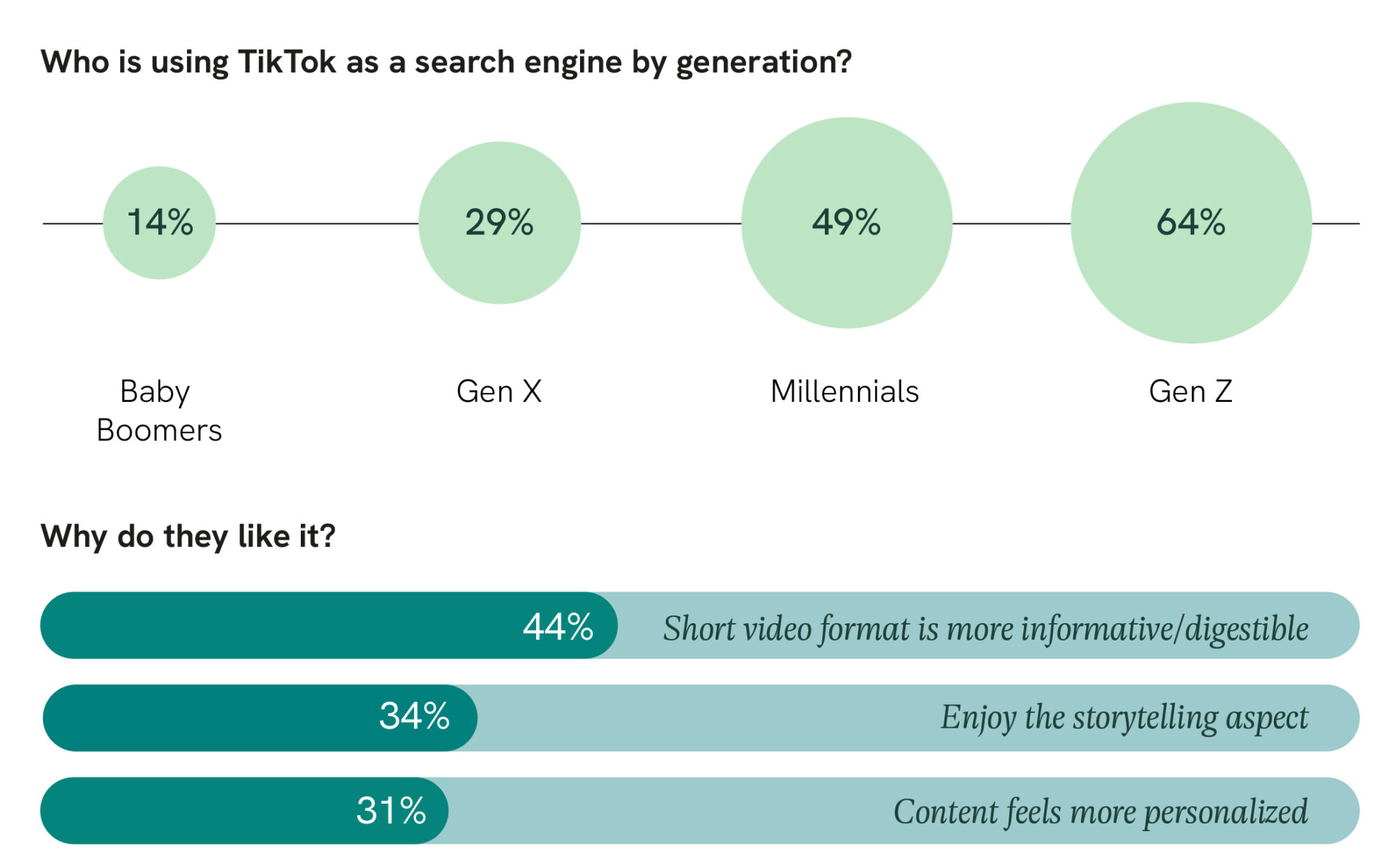
With so many users now turning to TikTok as a source of information, we wanted to find out what that means for the healthcare landscape and how patients and healthcare providers (HCPs) are engaging with the platform.
The patient perspective
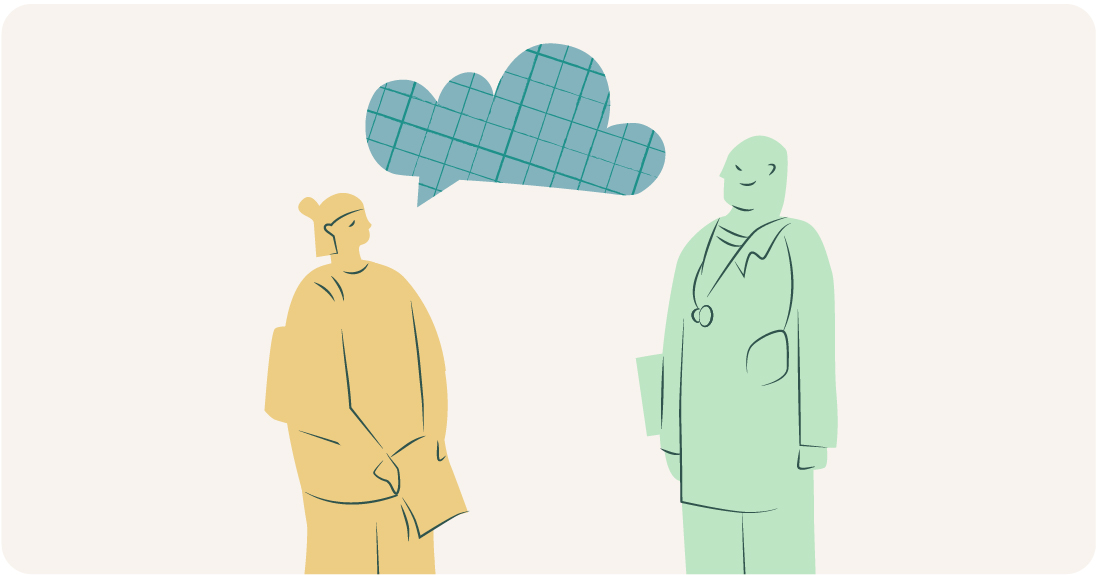
In 2023, TikTok users spent an average of 630M hours watching videos with the hashtag #Doctors, 427M hours watching #Nurses videos, and 336M hours watching #Dentist videos4, for a combined 1,393M hours. Meanwhile, the #HealthTok and #HealthTips hashtags amassed over 2.6B and 11.2B views respectively.
On top of that, nearly 1 in 5 Americans – TikTok’s biggest audience5 – say they trust health influencers more than medical professionals in their community and turn to TikTok before their doctor when seeking treatment for a health condition6.
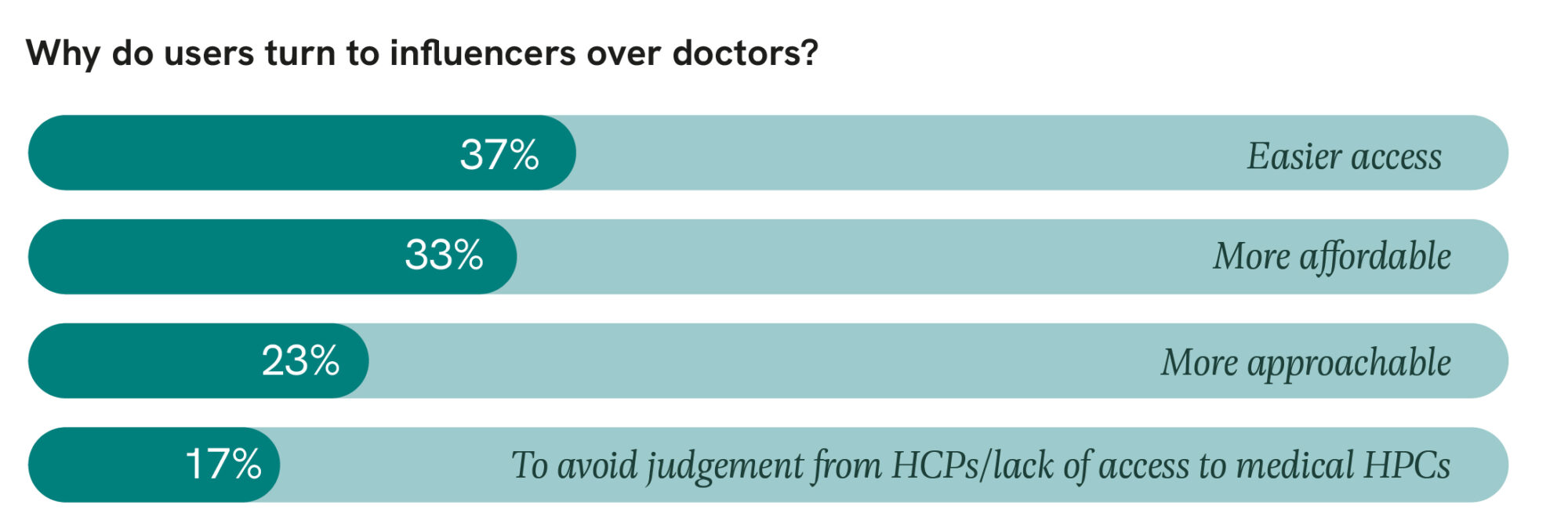
Different users; different usage
Unsurprisingly, younger generations are more likely to turn to social media to chat about health concerns – 33% of Gen Z-er’s and 26% of millennials will discuss illness on social media, compared to only 5% of boomers8.
When it comes to patients with chronic conditions, 30% of people globally don’t see their doctor as a regular information source. That number is higher for some conditions, such as inflammatory bowel disease (IBD) – 63% IBD sufferers don’t turn to their doctor as a first point of call. Instead, 29% of IBD patients use specific groups on social media and 28% rely on online influencers9.
In #HealthTok we trust?
Self-education about personal health is empowering for individuals and can increase health literacy among patients – if the information is reliable. Unfortunately, on TikTok that’s rarely the case. As many as 98% of videos under the top health hashtags (such as #healthhack, #healthhacks, and #healthtok) contain misleading information or advice10, while content from users with no medical qualifications gets almost five times more views than content from qualified individuals11.
Taking a closer look at specific therapy areas, including osteoarthritis12, heart failure13, and varicoceles14, studies routinely describe TikTok videos as ‘unreliable,’ ‘unsatisfactory,’ ‘questionable’, and ‘not acceptable’.
This paints a stark picture for patients: a growing number are trusting TikTok for information, while the platform is falling short when it comes to reliable and accurate content.
The HCP perspective
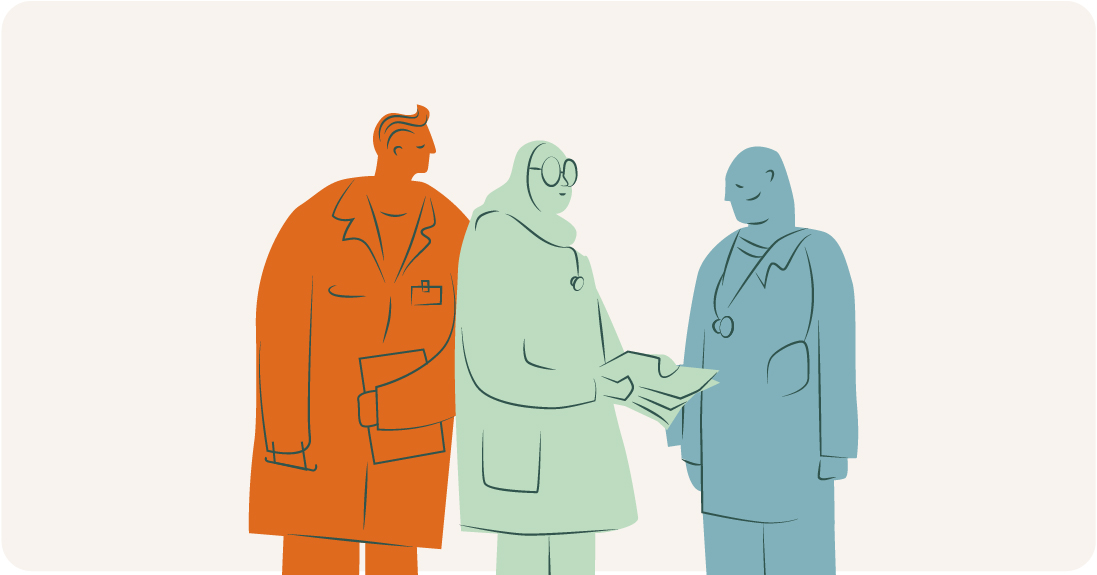
Consumers and creators
As of 2021, there are over 3.8M active HCPs on TikTok15. As content creators, HCP influencers garner millions of followers, such as Dr.Noc, Doctor Youn, and DermDoctor, and represent a wide range of medical specialties.
As content consumers, HCP TikTokers are as influenced by what they see on the platform as other users. A SERMO survey found that 57% of U.S. physicians have changed their perception of a medication as a result of information they’ve seen on social media16, while 46% of surveyed physicians reported following fellow physicians or other HCP influencers on social platforms.
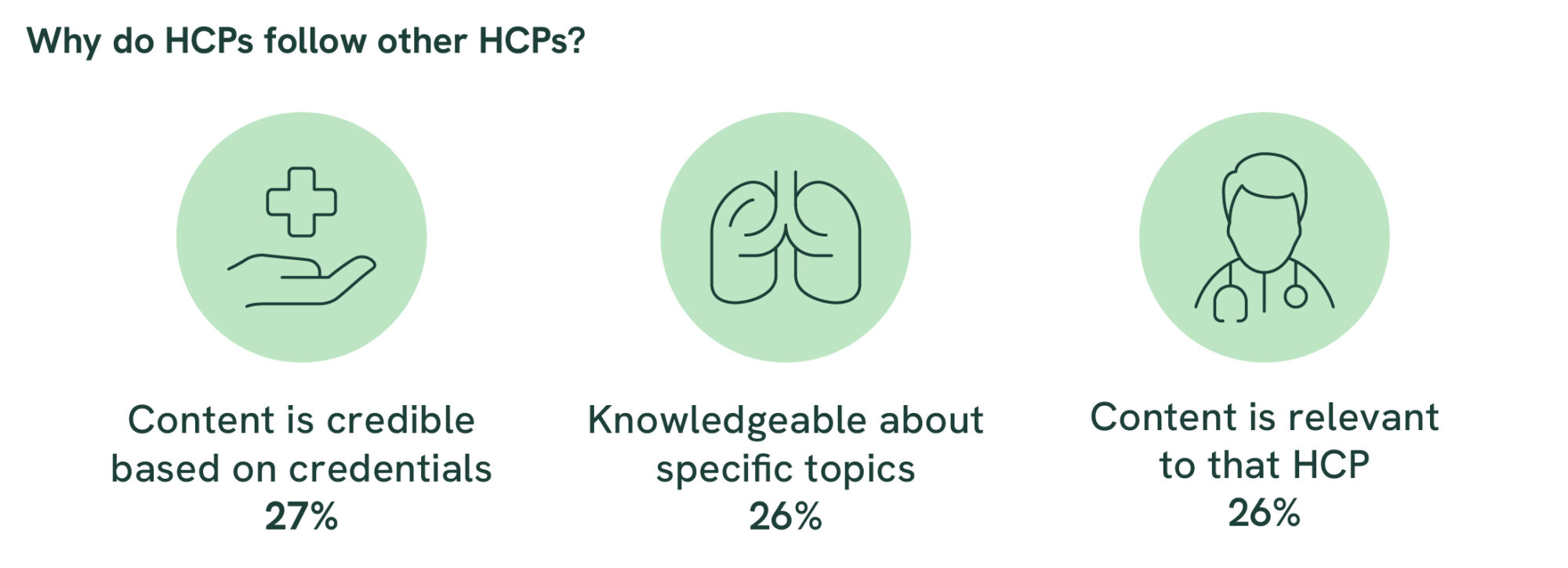
Dr. Ben Rein, a neuroscientist and TikTok influencer under the handle Dr.Brein, analyzed his own account to see how followers were engaging with his content. He found that videos summarizing research papers received the highest levels of engagement with audiences that included average users as well as medical colleagues. He also found that 84% of his followers say they feel more connected with science and trustful of scientists since following him18.
Sharing the #DoctorLifestyle
The prevalence of doctors and other HCPs on TikTok is leading to a growing interest in highlighting the experience of being an HCP. The #DoctorLifestyle hashtag has a whooping 58.7M views across over 3,000 videos, with many sharing the reality of life in the medical field through humor or a personal take on the experience.
TikTok is also being used to generate interest within the medical field – for example, one study found that TikTok generated ‘remarkable’ interest in a summer neurosurgical webinar, where 33% of the participants reported hearing about the program through TikTok19.
The (pharma) marketer’s perspective
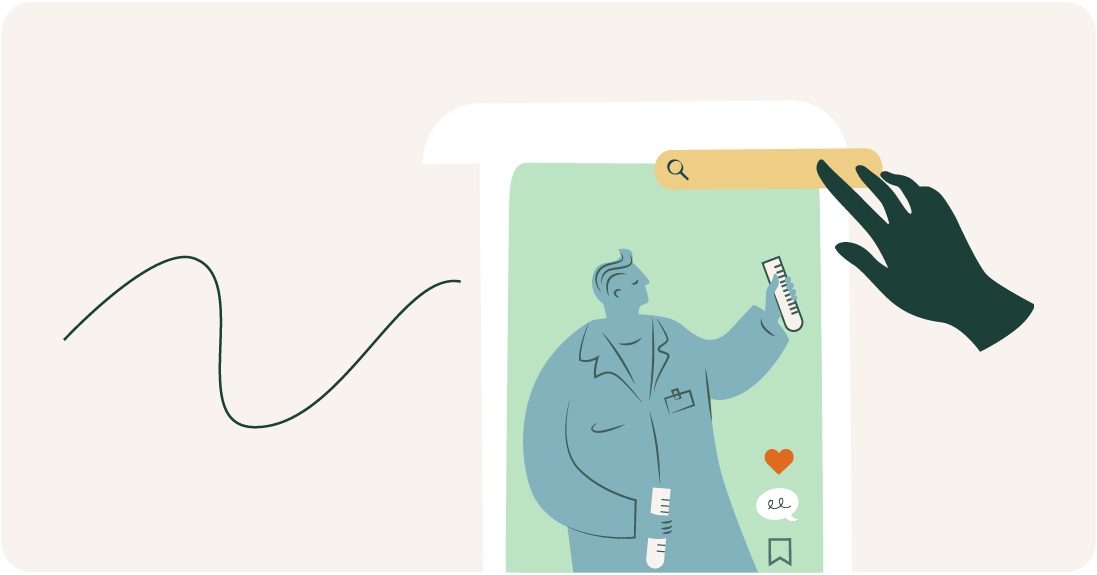
What does this all mean for health marketers?
The impact of TikTok when it comes to sharing information can’t be understated. Whether you’re considering it for content distribution, such as awareness campaigns, or for research purposes, such as understanding audience behaviors, monitoring competitor activity, or analyzing topics, the opportunity is enormous.
The top players
Slowly but surely, pharmaceutical companies are embracing TikTok. As of today, five of the top 25 pharma companies are producing content on TikTok through verified accounts. Some of these accounts focus on employee content and company image, while others provide information on disease awareness and patient stories.
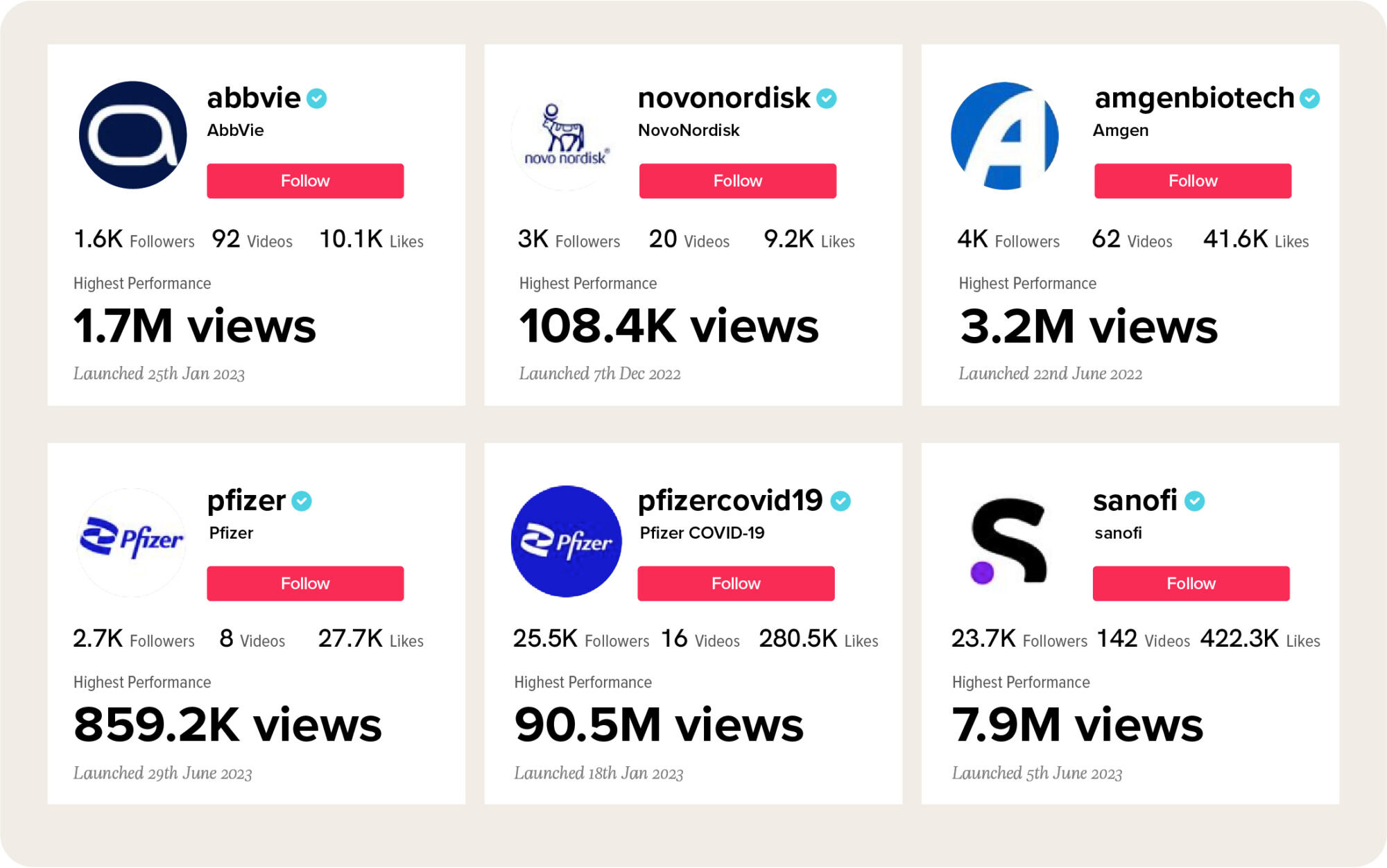
Partnerships
Partnering with digital opinion leaders to produce content is a great way for health brands to engage with audiences. Not surprisingly, several studies have found that TikTok content produced by HCPs tends to be informative and of a high quality 26,27, which can help counteract the highly-prevalent misinformation on the platform. Educational videos shared by credible HCP accounts are an effective means of sharing important information with other HCPs, patients, and the general public.
Patient influencer collaborations can also be highly valuable. By sharing relatable content reflecting personal experiences, patient influencers establish meaningful connections with fellow patients and caretakers – and our research consistently finds that patients are more receptive to advice from peers than from a brand. Not only does peer content contribute to a richer and more authentic narrative around personal health, it also tends to generate high levels of engagement.
Audience insights
Beyond producing and sharing content, the platform can also be used to gather highly-relevant audience data. Short-form videos shared by HCPs and patients provide insight into specific therapy areas or diseases, while platform metrics reveal how users interact and engage with specific types of content.
Some of the more impactful insights we’re able to gather from TikTok include:
- What kind of content drives engagement
- What trends are emerging in the health landscape
- What patient experiences are like across the treatment journey
- How specific audiences are interacting with each other
- The behaviors, challenges, and motivators for certain audience groups
The key takeaway: if you’re not capitalizing on TikTok, you’re missing out.
TikTok is an incredibly rich source of audience data that produces meaningful and actionable audience insights, as well as a powerful platform for engaging with patients and HCPs – and health marketers can’t afford to ignore it.
Get in touch
Reach out to learn more about how the experts in our research team can use social listening tools to gather the insights your brand needs to reach your goals in 2024.
Contact